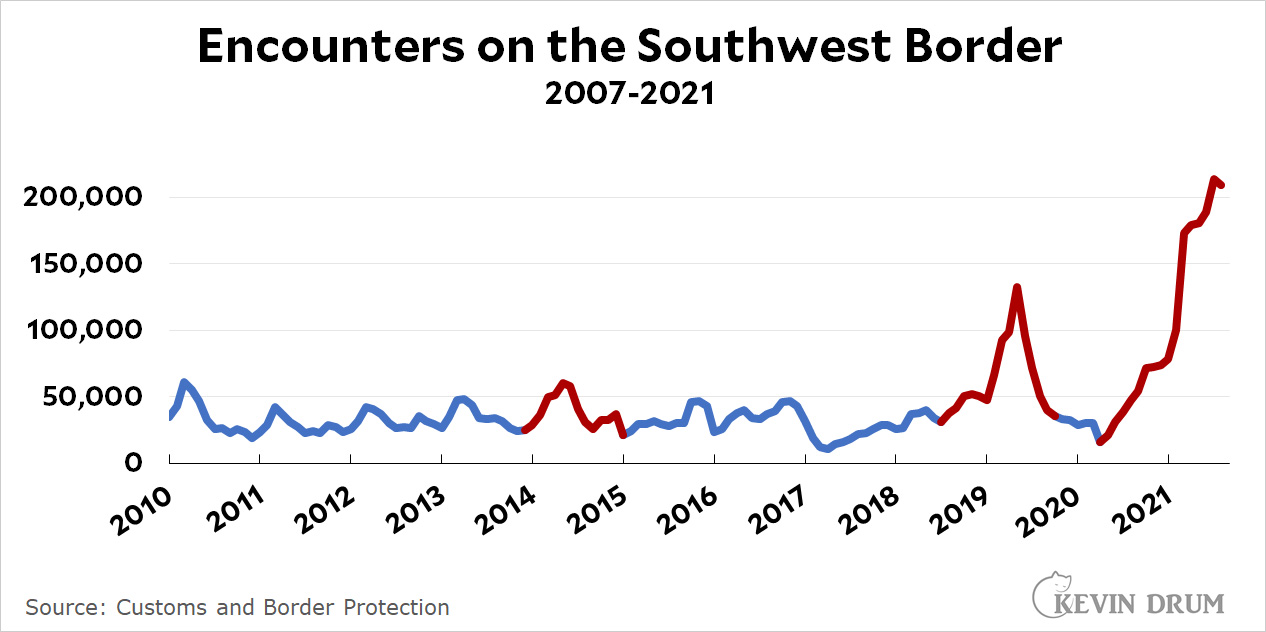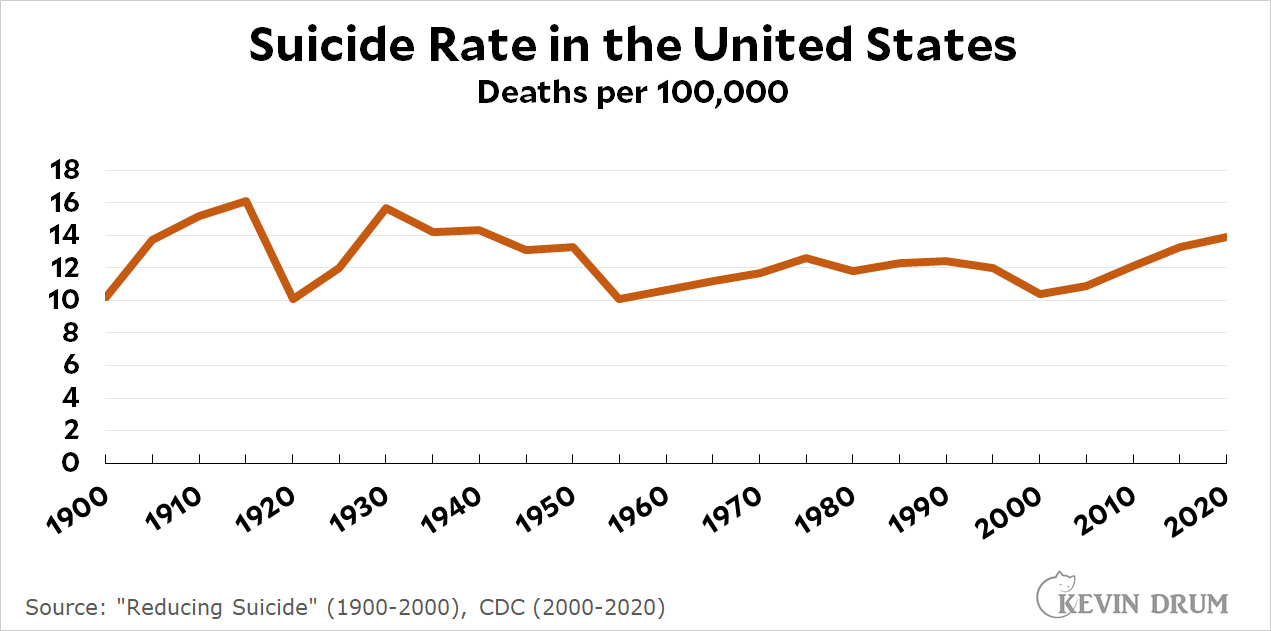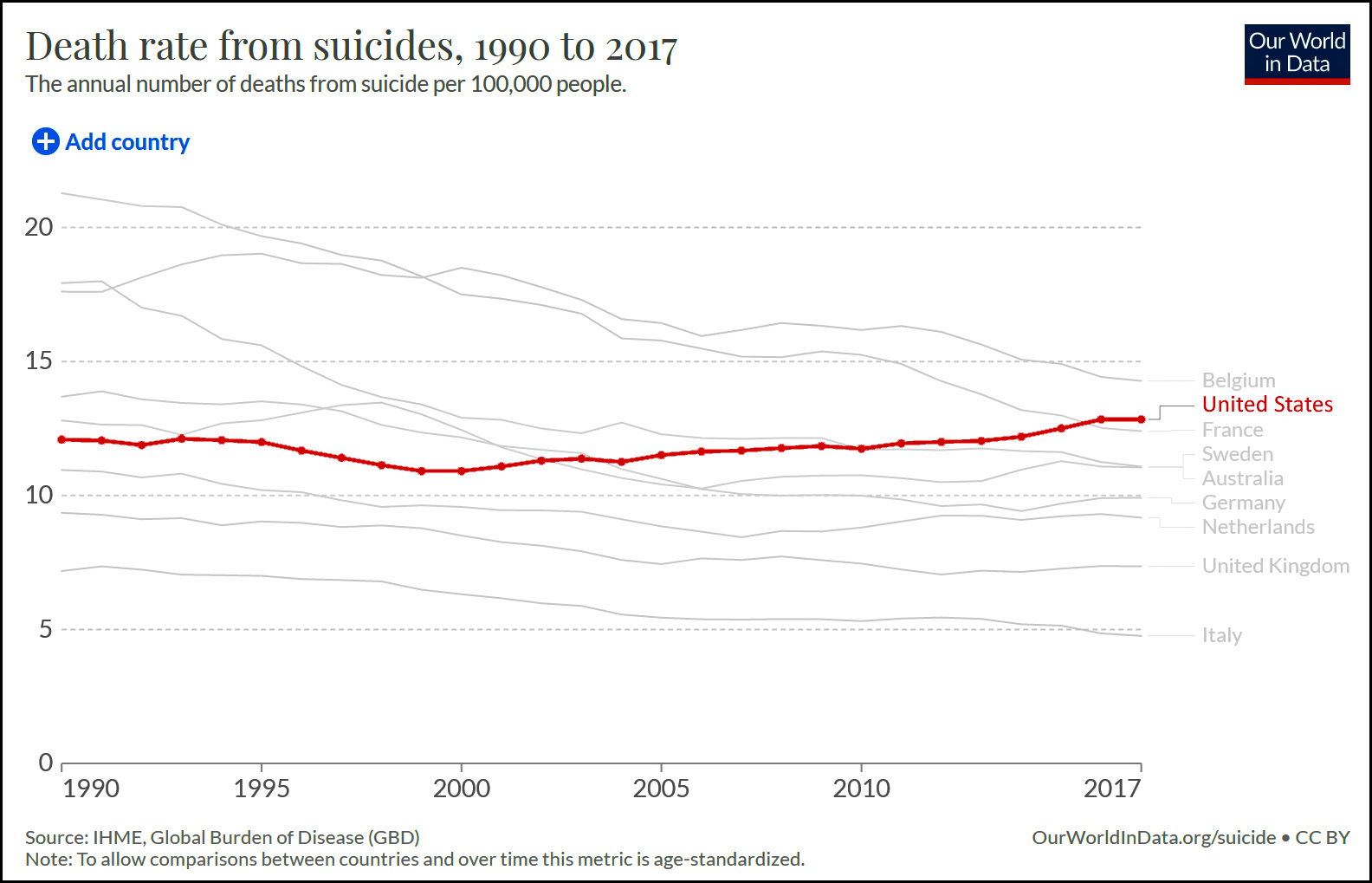Here's the latest on l'affaire submarine:
Australia’s Prime Minister Scott Morrison said Sunday it had “deep and grave” concerns about the diesel-powered submarines it planned to buy from France — and that Paris knew this well before Canberra abruptly cancelled that deal in favor of sharing nuclear submarine technology with the United States and Britain.
Maybe so. But something that's gotten oddly little attention is that the French submarine fleet is entirely nuclear powered. The Australian project was indeed going poorly, but that was largely because the Aussies wanted diesel-powered subs and converting the French Attack-class boats to diesel engines turned out to be more fraught than anyone had predicted. If nuclear propulsion and a faster schedule had really been at the bottom of Australian concerns there was a pretty easy solution at hand: ditch the reconfiguration and buy off-the-shelf nuke-powered Attack-class subs.
It's true that US Virginia-class subs are technologically more advanced than anything France can offer, but not by enough to really be the driver of the Australian decision. This is why France is so put off by the abrupt switch: they know perfectly well that problems with construction weren't a big factor. The whole thing is largely symbolic, demonstrating that the US, UK, and Australia want to form a close alliance in the western Pacific that very publicly excludes France. Especially since it came without warning, it's hard to think of anything that could have been more insulting.
All three AUKUS members were surely well aware of this. So either they decided the strategic benefits were worth the cost or else they actively wanted to insult the French. But which was it?






